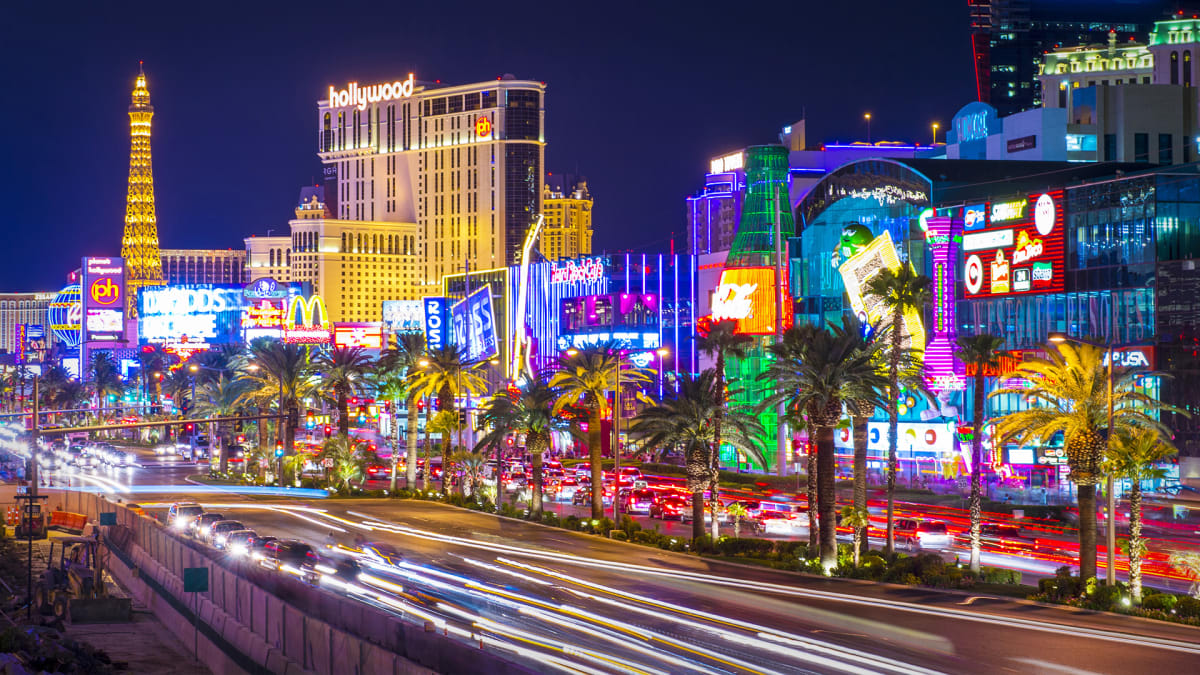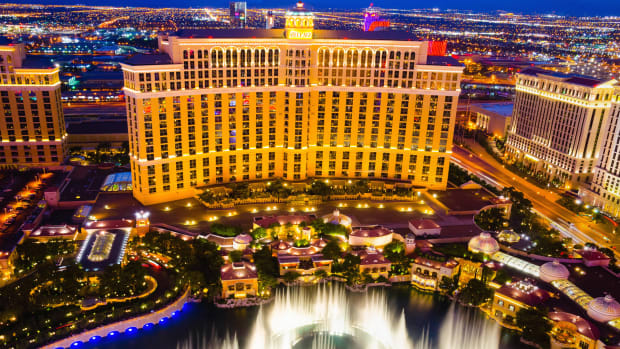
Sometimes real estate on the Las Vegas Strip seems like a game of musical chairs. A lot of major players want in on the game, but escalating prices make every deal tenuous and every new project questionable until it actually happens.
Over the past year, the Strip has seen an unusual amount of major resort casinos changing hands. MGM Resorts International (MGM) bought The Cosmopolitan and then sold The Mirage to Hard Rock International. In addition, Bally's Corporation (BALY) bought operating rights to Tropicana, which will be torn down and replaced with a baseball stadium for the Oakland A's.
DON'T MISS: One-of-a-Kind Las Vegas Casino Set for Full Remodel and New Operator
That deal brought a lot of attention to the unique way many Las Vegas Resort casinos operate. In nearly every case, one company -- usually Vici Properties (VICI) or Gaming and Leisure Properties (GLPI) owns the underlying land a resort sits on, while a second company pays rent, usually on a long-term lease, to operate the property.
Under deals like that, it's possible for the current operator to lose rights to the property when their lease expires. Caesars Entertainment (CZR), will soon lose operating rights to the off-Strip Rio, which will be remodeled and taken over by Dreamscape, the company Caesars sold the land the resort sits on to in 2019.
Caesars likely made that sale knowing and/or wanting to no longer have Rio in its portfolio, but a land sale can sometimes lead to a change in operators.

Las Vegas Strip's Bellagio May Be Sold
Currently, MGM runs the Bellagio which sits on land owned by Blackstone Group (BX). That could eventually change as the Las Vegas Review-Journal has reported that Blackstone is considering selling a 50% stake in the property.
"Heightened chatter about a Bellagio transaction arrived on the same day Blackstone said it’s selling $3.1 billion worth of industrial warehouses and related properties to Prologis. That transaction is expected to close by the end of this month," the paper shared.
If Blackstone sells the property, it could open the door for MGM losing operating rights, but not anytime soon. When Blackstone purchased the property from MGM for $4.25 billion in 2019, it entered a "long-term" lease with the casino operator to run the property.
"As part of the transaction, MGM Resorts will lease the property from the joint venture and continue to manage, operate and be responsible for all aspects of the property on a day-to-day basis. MGM Resorts will sign a long-term lease and continue to be responsible for all operations and capital expenditures of the Bellagio, with the joint venture owning the property and receiving rent payments," the companies shared at the time of the sale.
MGM signed a 30-year lease with two 10-year options and retains a 5% ownership stake in the property.
A Las Vegas Strip Transaction With Little Consumer Impact
In most cases, when a landowner changes on the Las Vegas Strip, nothing happens with the operating agreement for the resort casino involved. That's what's likely to happen here, although a new owner which wants to eventually operate the property could put off investment and would have some leverage to get MGM to not pick up its options, although that is very unlikely.
New ownership being part of the group controlling the Bellagio site would bring a different voice to the table. That could result in more development, a remodel, or other changes at the property.
In some cases, as we saw with Bally's and Gaming and Leisure Properties, which worked together to make the A's deal, changes to agreements can happen when opportunities present themselves. In that case, the land-owner gave the baseball team the 9 acres for the stadium while Bally's gave up the Tropicana, but retains rights to build another casino on the remaining land.







